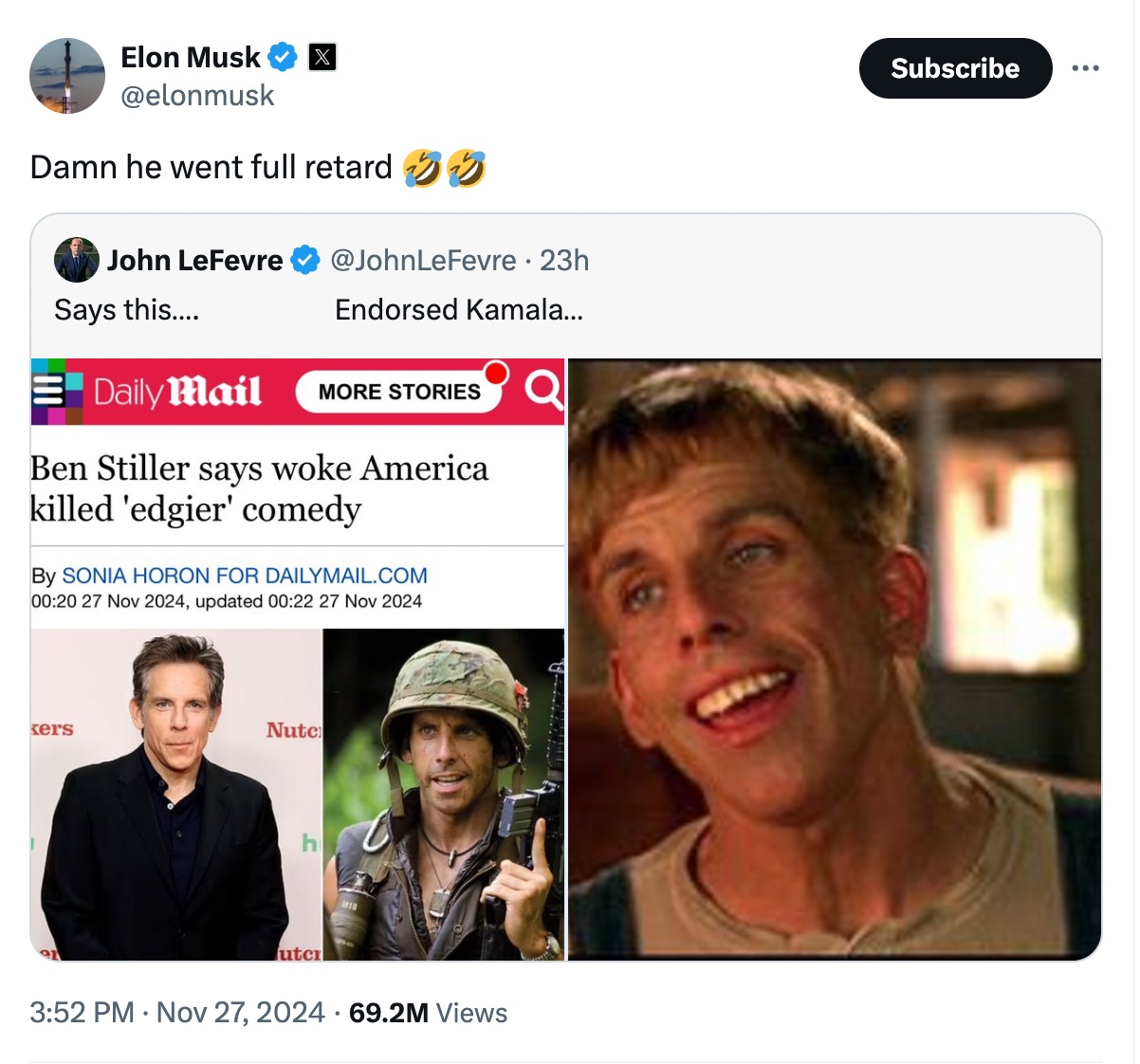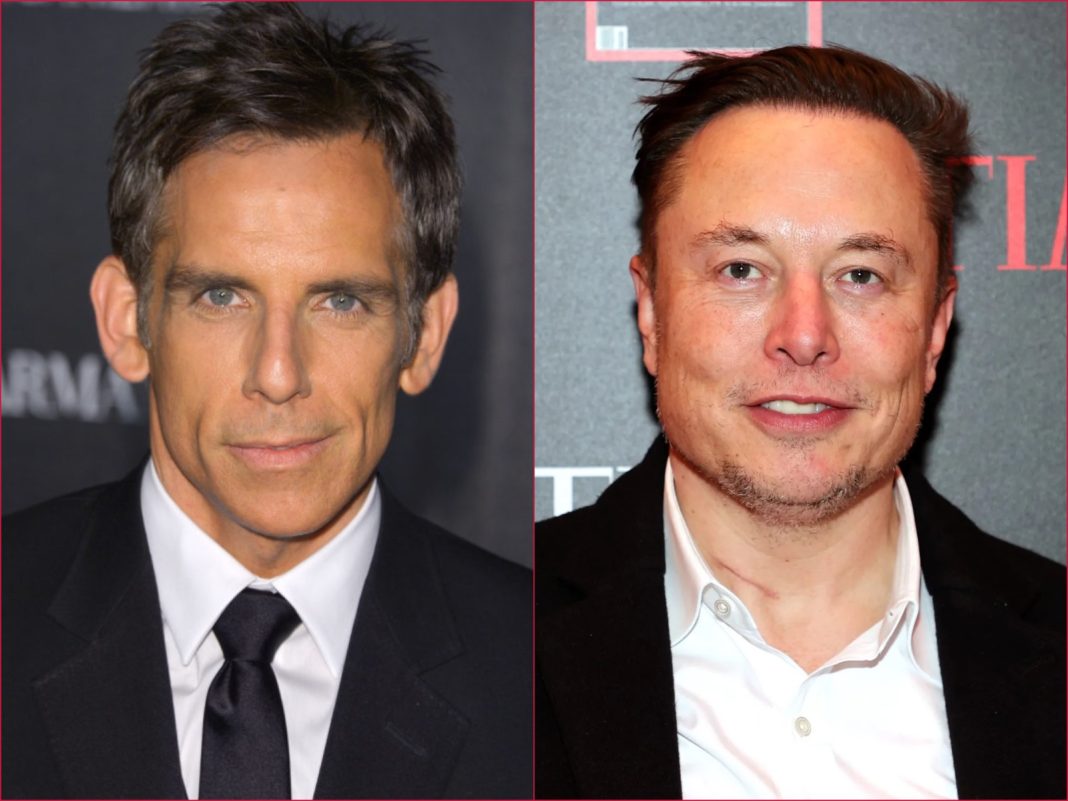BOCO CHICA, USA – Elon Musk is once again at the centre of controversy, this time for using a slur while mocking actor Ben Stiller in a post on X (formerly Twitter).
The tech billionaire’s remarks, referencing a scene from the 2008 satire Tropic Thunder, have drawn criticism from some for their offensive language and praise from others for taking a stance against “woke ideology.”
The Post and the Backlash
On Wednesday, November 27, 2024, Musk shared a post juxtaposing a headline of Stiller criticising “woke America” for stifling edgy comedy with a photo of his character Simple Jack from Tropic Thunder.
Captioning the image, Musk wrote, “Damn he went full r—-d,” referencing a controversial scene from the film.

The line, a satirical critique of Hollywood’s tendency to exploit disabilities for awards, was polarising when the movie debuted and remains contentious today.
Critics quickly denounced Musk’s use of the slur, calling it ableist and inappropriate, regardless of its cinematic origins.
Many questioned Musk’s decision to use such language on a platform he owns, highlighting its potential to amplify harmful rhetoric.
While some condemned Musk’s post, others defended him, arguing that the quote was a callback to the film’s satirical intent and claiming it underscored his critique of Stiller’s political choices.
Supporters framed the incident as part of Musk’s broader opposition to “woke culture.”
Ben Stiller’s Comments on Comedy and Politics
The post stemmed from an interview Stiller gave to Collider, where he reflected on the challenges of making edgy comedy in today’s cultural climate.
Referring to Tropic Thunder, Stiller said, “The only reason we attempted it was I felt like the joke was very clear in terms of who that joke was on—actors trying to do anything to win awards. Even at the time, of course, it was dicey too.”
Stiller also acknowledged voting for Kamala Harris in the 2024 presidential election, a choice Musk appeared to critique in his post.
The controversy highlights ongoing tensions in public discourse around free speech, comedy, and political ideology.
While some view Musk’s comments as an attack on political correctness, others see them as perpetuating harmful stereotypes and undermining constructive dialogue.
As the debate continues, Musk’s post has reignited discussions about the limits of satire, the responsibilities of influential figures, and the intersection of politics and popular culture.
For now, the backlash underscores the deep divisions in how these issues are perceived in contemporary society.







